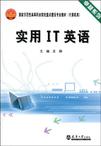实用IT英语
出版时间:2009-7 出版社:天津大学出版社 作者:王翔 编 页数:258
前言
对于计算机专业的学生和工作者来说,IT英语的重要性是不言而喻的。伴随着我国外向型经济发展步伐的不断加快,我国在面向全球的计算机软硬件外包领域取得了长足的进展,IT业对于专业英语过硬的应届毕业生的需求也因此而不断加大。编者曾经走访过多家IT业知名企业,在与企业的管理、技术人员交流中感到,熟练使用IT英语已经成为企业是否录用应聘者的重要条件。 本书在教学要求上,强调IT领域的专业术语及相关技术的英语表述和阅读方法,不将语法、习惯用语等知识作为教学内容,从而避免与《大学英语》、《实用英语》等教材的重叠。本书在编写内容上,强调广泛地讲述和介绍IT英语知识与技能,将语言难度适当降低,将学习内容拓宽,力求使读者能较为全面地掌握使用IT英语的思想和方法,并对以后继续深入学习IT英语奠定基础,不对某一知识或某一技术细节着太多笔墨,从而避免与IT类其他中文专业教材的重叠。 培养高素质、技能型人才已经成为高职高专类院校的人才培养目标。因此,学习企业和行业工作者需要的IT英语知识和技能,避免今天所学内容与明天工作需求不相吻合的情况,是本书编写的出发点。本书大量引用国内外知名IT企业当今主流产品的介绍和使用说明书,力求为读者提供一个仿真的工作环境,全面提升使用ⅡT英语的技能水平,培养使用IT英语的职业素养。 本书在编写过程中,参考了大量的文献资料,其中部分内容来自互联网,特别是IT领域一些知名厂商和机构官方网站,在此向这些文献资料的作者深表谢意。华北航天工业学院安志远教授在百忙当中审阅了全部书稿,天津职业大学电子信息工程学院院长丁桂芝教授及行业和企业界的技术和管理人员对本书的编写提出了宝贵建议,编者在此一并表示感谢。 本书由王翔任主编,孟祥双、孙惠芹、贾海瀛、王炯任副主编。本书第1-3、5章由王翔编写,第4章由耿坤编写,第6章由孟祥双编写,第7章由孙惠芹编写,第8章由王彦编写。贾海瀛、李莉、李勤、郝玲、高雅群、陈洁、王炯、张林中、徐亮、薛继霜、傅春参与了本书的译文、专业词汇整理等部分的编写工作。
内容概要
本书依照高等职业教育国家示范校建设的要求,以提高学生在工作中使用IT英语的技能水平为目的,根据高职高专学生特点,较为宽泛地讲述IT英语知识和技能,适当降低语言难度,强调实用性、基础性及IT英语学习的可持续性。 全书共有8章,每章3至4个单元。每单元除专业课文及难度不大的配套练习外,还大量引用了知名企业当今主流产品的英文介绍和使用说明书,为学生提供与未来实际工作接轨的仿真环境。全书内容涵盖计算机软硬件基础知识、多媒体技术、网络技术、电子商务及嵌人式技术等专业英语知识;本书所配光盘中附有专业课文的参考译文、练习参考答案及IT术语和IT英语缩写的中文解释。 本书可作为高职高专学生的IT英语或计算机英语教材,也可供从事IT相关专业的工作人员或关心、爱好IT业的朋友们学习参考。
书籍目录
1 Information Technology and Our World Unit 1 The Development of Computer Technology Unit 2 Computer Hardware Unit 3 Computer Software Unit 4 The History of Internet2 Multimedia Unit 1 An Introduction to Multimedia Unit 2 Storage of Multimedia Unit 3 Flash Unit 4 Multimedia Application3 Programming Languages Unit 1 The Development of Programming Languages Unit 2 Object-oriented Programming Concepts Unit 3 C++ and Java Unit 4 Fourth-generation Programming Language 4 Operating Systems Unit 1 Disk Operating System (DOS) Unit 2 Unix Operating System Unit 3 Windows Unit 4 Mac OS5 Database and Data Warehouse Unit 1 An Introduction to Database Unit 2 SQL Fundamentals Unit 3 Foundation of Database Unit 4 Microsoft SQL Server 20006 Computer Networks Unit 1 Network Basics Unit 2 TCP/IP Unit 3 Transmission Media Unit 4 Transmission Characteristics7 E-commerce Unit 1 E-commerce Basics Unit 2 B2C and B2B Unit 3 Creating an Integrated E-commerce Strategy Unit 4 An Introduction to International Taxation of E-commerce 8 Embedded Technology Unit 1 The Development of Embedded Technology Unit 2 An Introduction to Windows CE and Linux Unit 3 Embedded Technology and SCMReferences
章节摘录
In the late 1960s and early 1970sengineers made great strides in reducing the sizeof electronic components.They developed the semiconductor chip,which was about thesize of a fingernail and could contain hundreds of transistors.The semiconductor chips en-abled engineers to miniaturize the circuits contained in all electronic devices.Most impor-tantly,it produced a new generation of mainframes and minicomputers with increased ca-pability,greater speed,and smaller size. The microprocessor became a reality in the mid.1970s with the large.scale integrated(LSI)circuit.The earliest microcomputer,the Altair 8800,was developed in 1975 by EdRoberts;this machine used the Intel microprocessor and had less than 1 kilobyte of memo-ry. In order for microcomputers to become problem.solving tools,a number of hurdlesneeded to be overcome.The first was to simplify the program for the machines.One stepin this direction was taken by a young Harvard drop.out named Bill Gates,who wrote aversion of the programming language BASIC for one of the earliest microcomputers.BASIChad been introduced at Dartmouth College in the mid-1960s by John Kemeny and KennethKurtz.Thus it was a popular programming language on mainframe computers.Gates foun.ded a computer company called Microsoft.
图书封面
评论、评分、阅读与下载
用户评论 (总计3条)
- 老样子啊卡通
- 很喜欢,增加电脑知识和英语知识
- 作为教师的我感觉文章难度大于高职学生的水平最重要的是每节中没有需掌握的单词表当然语法就更没有了不适合教学用自我感觉也不是很适合自学难度较大如果是作为辅助阅读材料还是可以的内容还是较新的
